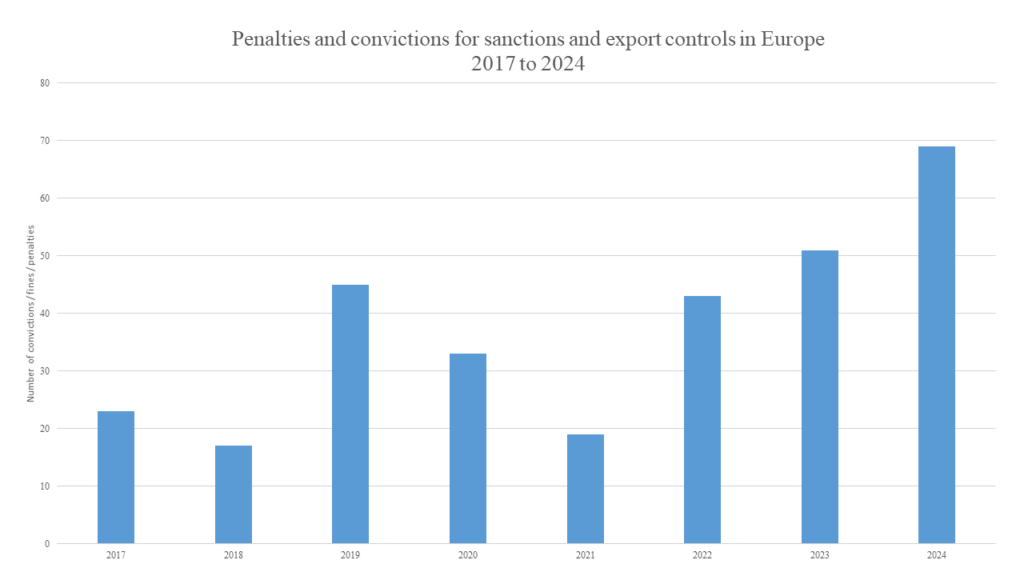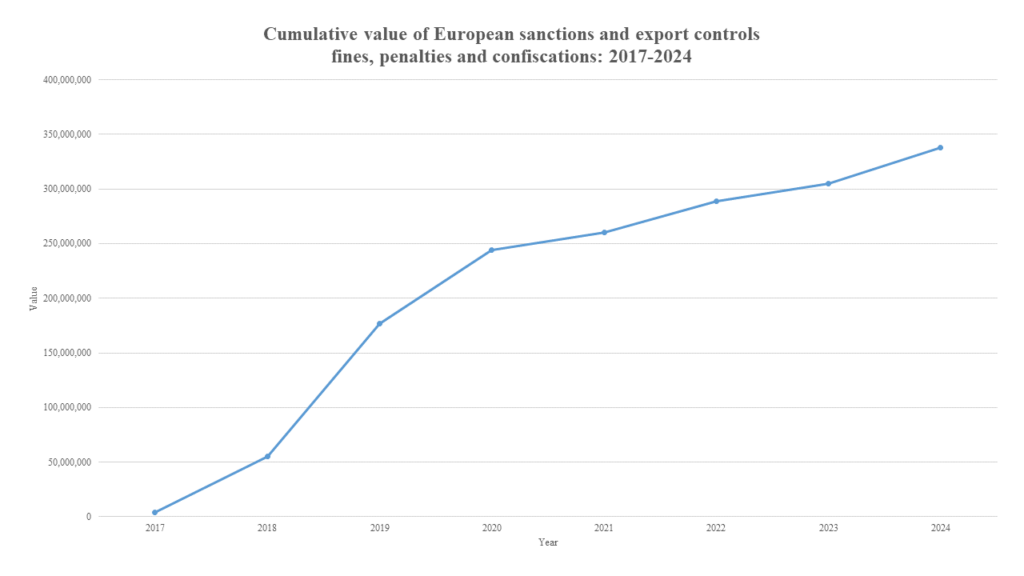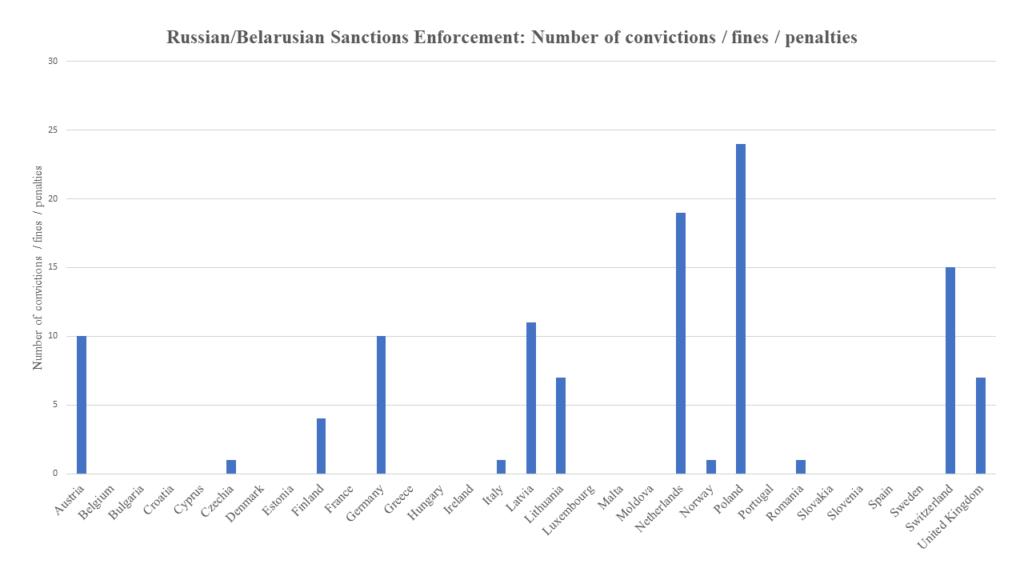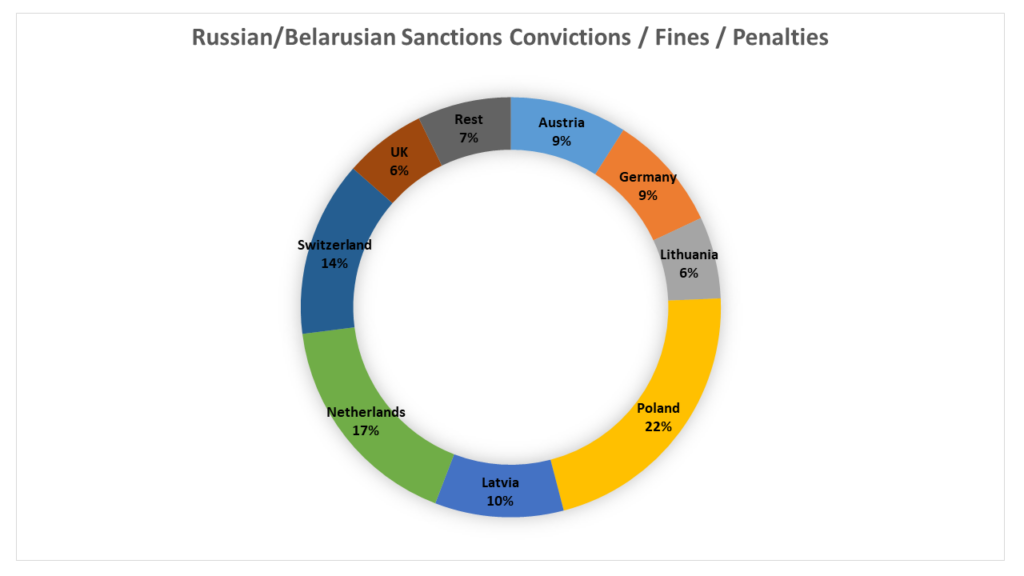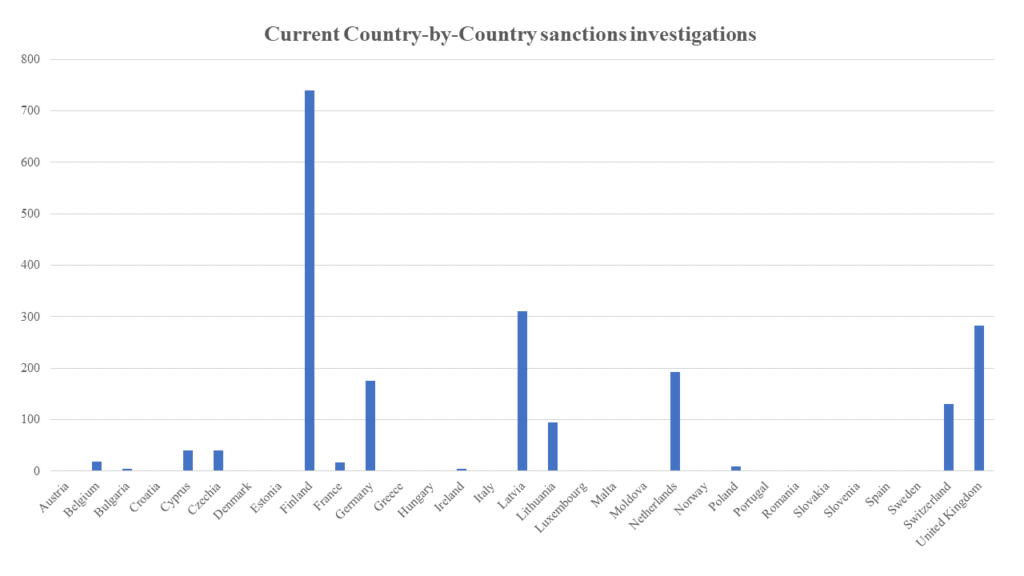Back in July we published a post highlighting that Switzerland’s SECO had imposed 5 new fines for sanctions breaches.
Through a Freedom of Information request we have obtained anonymized and redacted copies of these five Final Administrative Criminal Decisions.
These five decisions, and machine-generated translations are provided below, as well as summaries of the enforcement actions. The numbering sequence from when this blog published the previous 10 decisions is continued.
As previously, the value of the fines are all fairly low and these five cases combine for a total of CHF 13,490.
11. Final administrative criminal decision, dated 19 February 2024
Original: 2024-02-19-I.77-Strafbescheid.pdf
Translation: 2024-02-19-I.77-Strafbescheid_Translation.pdf
This case concerned the attempted export of CHF 10,569.90 of electrical switches to Russia. The export was stopped at Zurich Airport Customs in December 2023.
The goods in question had been included on the Swiss sanctions list as of 25 January 2023.
The company claimed it was unaware the goods were sanctioned, and SECO accepted this finding that the export was negligent rather than intentional.
In light of the company’s cooperation, and the company being able to show a track record of refusing sales to Russia which they knew were sanctioned, SECO set the fine at CHF 750, plus CHF 250 in costs.
The goods in question were returned to the seller.
12. Final administrative criminal decision, dated 26 February 2024
Original: 2024-02-26-I.78-Strafbescheid.pdf
Translation: 2024-02-26-I.78-Strafbescheid_Translation.pdf
This case concerned the attempted export of €57,263 worth of pressure transmitters, pressure transducers and pressure gauges to Russia. The export was stopped at Zurich Airport Customs in December 2022.
The goods in question had been added to the Swiss sanctions list during November 2022.
SECO had earlier written to the company, in 2021, to say that the export of the goods could be done without a licence, subject to the changing requirements of Swiss sanctions.
SECO accepted the argument that the export was not intentional, but found it was negligent and that the company should have been more aware of the sanctions in place.
In light of the company’s cooperation, SECO set the fine at CHF 2,900, plus CHF 970 in costs.
The goods in question were returned to the seller.
13. Final administrative criminal decision, dated 26 February 2024
Original: 2024-02-26-I.67-Strafbescheid.pdf
Translation: 2024-02-26-I.67-Strafbescheid_translation.pdf
This case concerns two attempted exports of spare parts for medical and dental devices to Russia. Within wider sales of nearly €27,000 worth of parts, sanctioned goods with a value of approximately €3,600 were included.
On both occasions the goods were stopped by customs.
The company sought to explain the two prohibited exports by saying that the wrong HS code had been entered into its internal system (9026.2000 instead of 8481.1010) and so it had not been caught by its systems. In the other instance the company said it searched for the HS code using the format in the customs tariff (which used a full-stop in the number), while in the relevant Appendix in the Ordinance the HS code used a space instead of a full stop. The company’s searches against its products therefore resulted in false negatives and the shipments were incorrectly authorised.
The company relied heavily on its detailed procedures and training as mitigation, and had appointed an outside consultant to assist further with compliance. In addition, the company sought a retrospective approval for the exports on humanitarian/medical grounds.
SECO denied that request saying “a retroactive authorization cannot be issued to regularize exports”.
While not alleging an intention to breach the sanctions, SECO decided that the company had been negligent and commented that a “more precise check” of the prohibited codes would have prevented the export. It is as good an example of the importance of fuzzy searching as you’ll find.
The company was fined CHF1,000 and costs of CHF590. The seized goods were returned to the company.
14. Final administrative criminal decision, dated 11 March 2024
Original: 2024-03-11-I.79-Strafbescheid.pdf
Translation: 2024-03-11-I.79-Strafbescheid_Translation.pdf
This case concerned two blocked exports of goods valued at €2000 which were stopped by the Zurich Customs office. The goods included foam generators and level sensors.
In the first example the attempted export took place on the same day as the respective goods were announced as being added to the lists of prohibited items. The version of Annex 23 to the Ordinance had been updated on SECO’s website, but not on other versions. Nonetheless, SECO determined that the export fell under the heading of “negligent”.
In the second example, the company argued that the prohibition against certain goods which are “suitable for use in the aerospace industry” could be negatived by evidence that this was not going to be the actual use. SECO disagreed.
The company was fined CHF2,300 and ordered to pay costs of CHF970. The seized goods were returned to the company.
15. Final administrative criminal decision, dated 13 March 2024
Original: 2024-03-13-I.76-Strafbescheid-002.pdf
Translation: 2024-03-13-I.76-Strafbescheid_translation.pdf
This case concerned a shipment of 8,640kg of products with customs code 3824.9919 valued at €19,612.80.
The goods were seized by the St. Gallen customs office in October 2022.
The company claimed that it had no knowledge that the goods in question were subject to Switzerland’s Russian sanctions.
SECO’s response was to state:
“However, it is not the actual knowledge of the persons concerned of the criminal nature of the sale and export transaction that establishes criminal liability, but it is sufficient if the knowledge of the criminal liability should have been present in the company with due diligence. This must be affirmed in the present case.”
SECO accordingly concluded that the company was guilty of a negligent breach of sanctions.
A fine of CHF2,800 was imposed and costs of CHF960. The seized goods were returned to the company.

